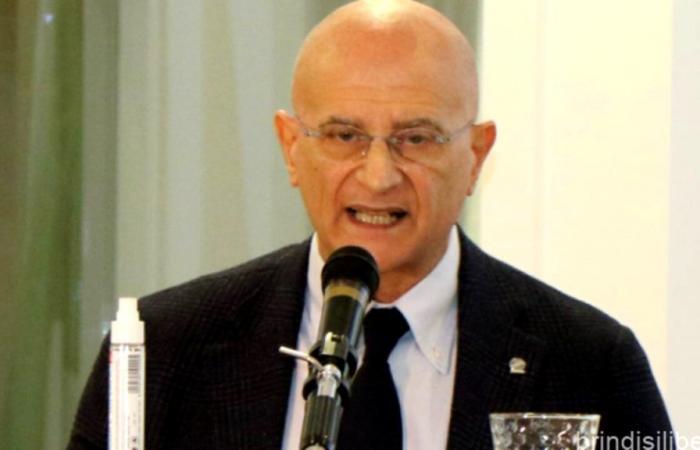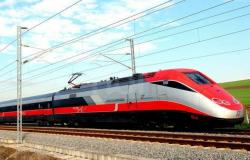Received and published by Gianfranco Solazzo, secretary of Cisl Brindisi – Taranto
2024 should be the year of the PNRR investments being put to the ground, around 200 billion in addition to the resources coming from the Cohesion Policy, the largest portion of which is destined for our South. Italy’s true resilience will therefore depend on the spending capacity of all the financial resources that the Next-generation-EU has granted us for our well-known fragilities in schools, healthcare, transport, energy, water infrastructure, ports, etc. Therefore: the time for evocations and proclamations, a highly practiced sport in our country, is over; now we need the works to be carried out by the established deadline, i.e. December 2026. This amount of funding should constitute an ideal medicine against the chronicity of economic and social criticalities, given that the Italian immune defenses seem to be increasingly lower, net of the zero-point of growth, inflation, then the growing public debt and so on.
Brindisi has proudly put itself forward as the Italian capital of culture in 2027 and energy, chemistry, pharmaceuticals, aeronautics and ports have proven to be the best immune defence, having developed the local economy; and this despite the fact that negative repercussions are being recorded, as elsewhere, also due to the insufficient environmental sustainability of its production system.
This, however, is also the time in which the city must apply to participate and win in further competitions, because culture, where unemployment, redundancy payments, closure of production sites, youth emigration, decline in birth rate, poor social policies nests, risks of becoming an oxymoron.
So, faced with the mass of resources mentioned above, a question must be asked of the local, regional and national ruling class: but in Brindisi, when does resilience begin? And the time for analysis, evocations and slogans, when does it end? We continue to read about rejected projects and more or less veiled anticipations of plant closures following an energy transition that, due to the way it is being implemented, continues to pose many critical issues to the national manufacturing system and beyond.
And if a transition conceived in this way were to ever resolve at least the environmental aspect and the health of citizens, contributing to lowering the CO2 emission share of the whole of Europe (around 7% of the global total), considering the remaining 70% with China with India in the lead, then let’s proceed to close and reject plant projects that do not respect the guidelines of a strong energy transition, speeding up the change no matter what the cost.
In this case, we reiterate once again, do not involve the union only to act as a notary for dismissal and CIG procedures, speeding up the times and distracting interest from the other transition, which is dearer to us, namely the social one. Just to mention the latest negative vicissitudes of the world of work in the Brindisi area, we recall the dismissals of the former Dcm, the Basell dispute with destinies not yet clarified, the Sir and Euroapi cases, to remain in the private sector.
But we must not overlook, in the public sector, Bms whose management turbulences certainly do not leave the employment destinies calm, the dispute for the Enel power plant whose outcomes for direct and indirect workers are at the moment still to be deciphered. We continue to say that the attention from the territory must not be weakened and we hope that what was declared at the Coordination table on decarbonization will be realized as soon as possible, because without concrete private and public investments, development remains a becoming without a destination.
Brindisi must confirm its industrial peculiarity if it intends not to survive but to tend towards growth and sustainable development, so the energy transition must prove to be an opportunity, not a further criticality, especially in terms of employment and social cohesion. We therefore hope that the expression of interest advanced by the Port System Authority of the Southern Adriatic Sea, together with the Port System Authority of the Ionian Sea, for shipbuilding, relating to the construction of wind power infrastructures, will be successful offshore.
Just as we hope that the Act Blade shipyard will open for the production of innovative wind turbines and that the investments of Renantis and BlueFloat Energy that have been mentioned many times will be realized. As for the infrastructural interventions within the port, we expect continuity, with the industrial investments illustrated, also in his greeting to the city, by the resigning President Prof. Avv. Ugo Patroni Griffi to whom, renewing our appreciation for his competence and his approach, certainly not anti-industrial, to the development of the port and hinterland, we express our closeness for his declared health problems, with the hope that he will resolve them soon.
We therefore await comparisons that provide the real key to understanding the financial resources in the field and the quantitative and qualitative employment needs. Brindisi requires impressive and targeted interventions, in relation to the profound change prompted by the ongoing epochal industrial transition, especially in the energy and chemical sectors, production sectors on which it has based much of its history. We also hope that the single SEZ can constitute a great opportunity for the development and growth of the territory. Time is not an independent variable, therefore as a community as a whole we would risk reaching the point of no return if, as soon as possible, we did not proceed to fill the Program Agreement foreseen in the last meeting on June 11th with achievable contents us held in Rome by the Committee for Decarbonisation, whose next round will be convened in Brindisi.
The decisive year for the resilience of our country, which we referred to at the beginning, must also concern Brindisi, because if it is true that it has been strategic for national energy security, a part of that mass of resources that Europe has granted “so that no one is left behind” brings advantages to our territory, facilitating a true and effective development plan.
Stay updated on news from your province by subscribing to our whatsapp channel: click here






